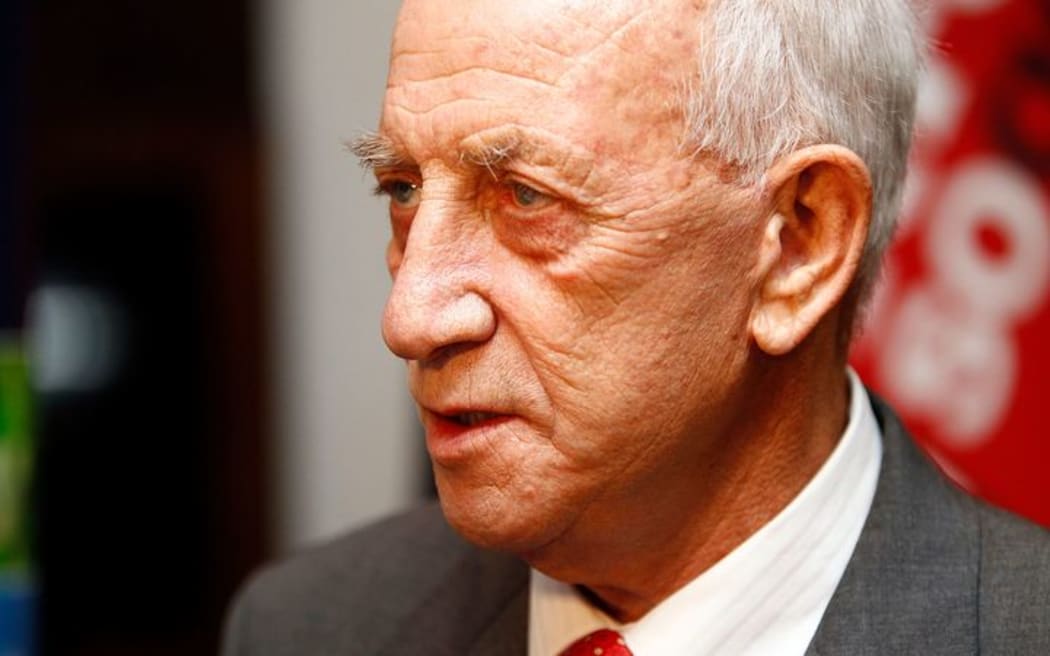The Press Council has not upheld a complaint against a column by Sir Bob Jones calling for a 'Māori Gratitude Day', despite calling it "mean, malicious and infantile".

Photo: PHOTOSPORT
Sir Bob wrote the column for NBR, calling for a Māori gratitude day instead of Waitangi Day, and saying Māori should bring pākehā breakfast in bed and weed their gardens out of gratitude for existing.
He claimed he was trying to be satirical and did not believe people would take his comments literally.
A petition started by filmmaker Renae Maihi called for Sir Bob to be stripped of his knighthood and gathered almost 70,000 signatures.
But a complaint made to NZ Press Council about the column has not been upheld, although not without some members of the council disagreeing with the decision.
The column - published in the NBR on 2 February - said as there "are no full blooded Maoris in existence it indisputably follows that had it not been for migrants, mainly Brits, not a single Maori alive today … would have existed".
Read the Press Council's full decision here
In its decision, the Council said the column caused immediate controversy upon publication, with widespread media attention.
The complainant said the column was racist and showed that NBR "tolerated" the Jones' negative view and that the comments were "out of touch with Māori and mainstream NZ".
NBR said the piece was withdrawn from its website soon after publication, as while the column created "spirited debate and criticism", people were taking sentences "in isolation and posting them on social media", removing context from the satire.
The Council noted that Sir Bob had a history of writing provocative columns, including calling for racial stereotyping, a call to ban all women drivers and the high number of obese people he had observed from his office window.
It said his opinions were often extreme and not to be taken seriously.
"Freedom of expression is the most important of the principles that the Press Council is required to take into account when determining a complaint. A key role of the media is providing a platform for the free expression of opinion and provided the material is clearly identified as opinion there are few restrictions on the content of opinion pieces.
"The column made the claim there are no full-blooded Māori and if it had not been for migrants there would be no Māori alive today. These contentions and ill-founded statements are clearly not to be taken seriously and the column was mean, malicious and infantile. It is not surprising the item drew an angry response."
Four members of the Council - Chris Darlow, Jo Cribb, Tiumalu Peter Fa'afiu and John Roughan - said they would have upheld the complaint, believing it clearly exceeded a reasonable boundary of free speech on the subject of race.
"The writer appeared to be straining for a reason to suggest Māori should grovel in gratitude to non-Māori for their survival, a suggestion the four members found gratuitously offensive."
The four members said his comments could not be excused as satire.
"This was an egregious example of free speech being used for no purpose beyond cruel amusement. While the newspaper quickly removed the column from its website when it realised the offence it had caused, the piece should not have been published."
The Council noted that NBR would no longer be publishing Sir Bob's columns and this was an "appropriate response to the justified public outrage".


